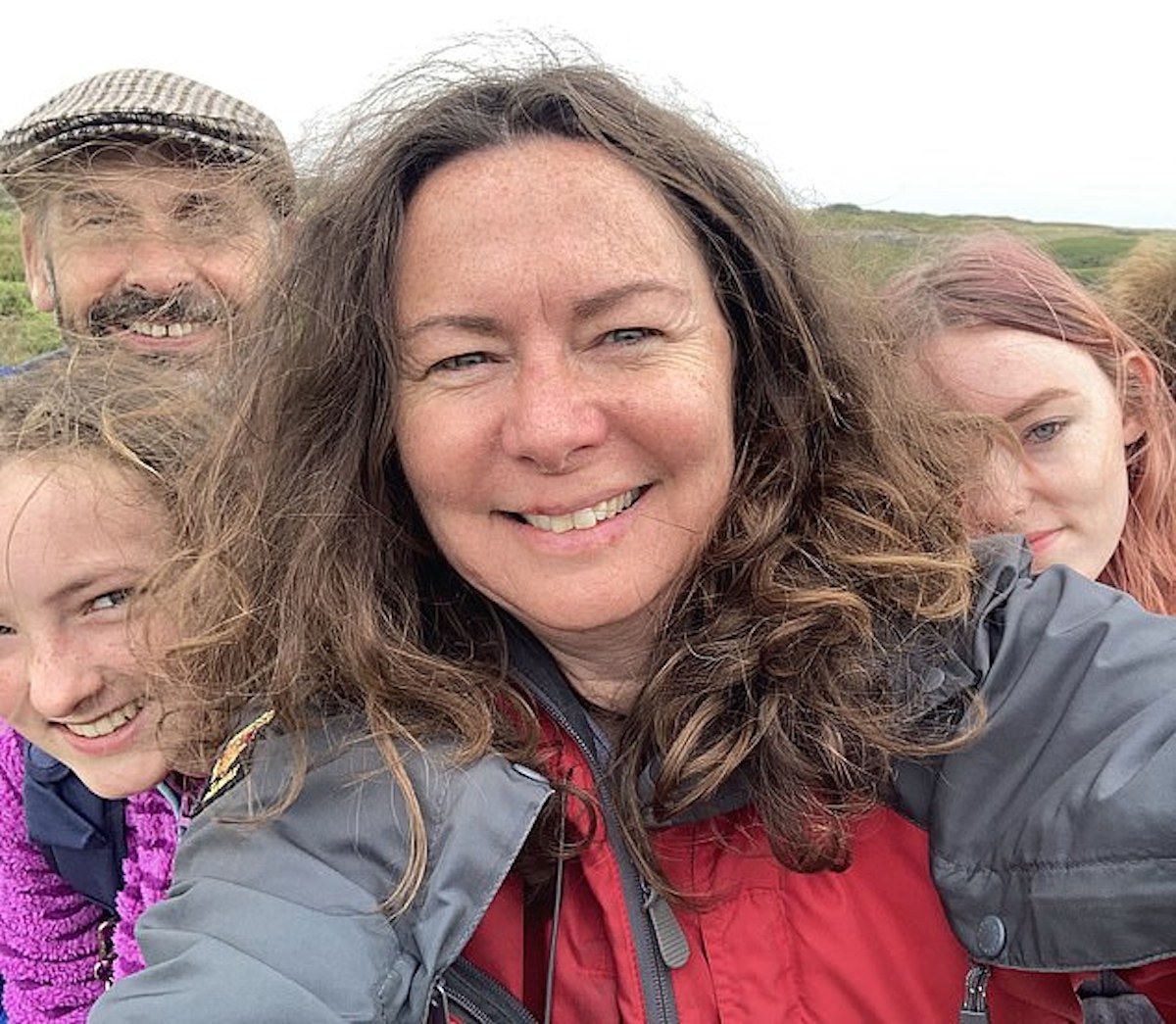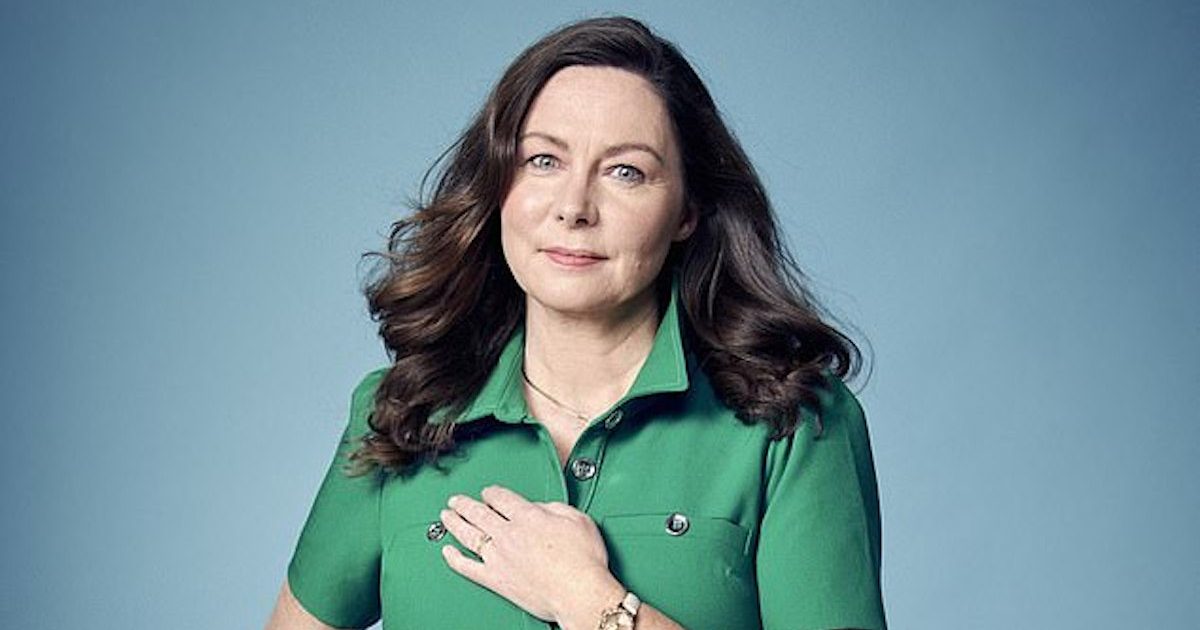A Woman's Intuition & Health
- When Lesley Gibson was 50-years-old, she sensed that she had breast cancer and despite doctors dismissing her concerns, she pushed for a mammogram
- Her intuition was correct and she was diagnosed with ductal carcinoma in situ (DCIS).
- Mammograms are the best tools in detecting breast cancer, and it’s recommended women start getting them every year starting at 45-years-old.
- One of the most important things that every individual should know is that when it comes to taking control and prioritizing your health, being your own advocate can really make a difference.
In 2018, Gibson knew in her heart that something had changed in her body, but when she visited her physicians her fears were dismissed. She insisted on going through a mammogram to make sure, and despite a small abnormality showing up, her doctors tried to assure Gibson that it wasn’t cancer. She wasn’t convinced, and urged them to do a biopsy. Gibson is a self proclaimed “medical intuitive,” meaning she claims that she can sense changes in the physical body thanks to “electromagnetic energy.” Although there’s no evidence to back up Gibson’s claims, she was right about one thing she did have breast cancer. Since we all do know our bodies better than anybody else, speaking up and seeking medical attention when something seems amiss is good advice for anyone.
Breast Cancer Screening
Mammograms are the best tools in detecting breast cancer and catching it early
of mammograms are accurate
“I practiced mindfulness and asked for guidance, Gibson wrote. “The answer was always the same: on my psychic screen, written clearly were the words: 'Mastectomy, mastectomy, mastectomy.’ I will always feel grateful for the lifesaving warning I received from my own energy field.”

Breast Cancer: Screening Guidelines
While Gibson claims she was able to sense her breast cancer, it’s important to note that mammograms are still the best tools in detecting signs of the disease and catching it early. Although it can be a nerve-racking experience for some women, the process itself only takes a few minutes and the long-term benefits can outweigh the slight discomfort.
Generally, current guidelines recommend women start scheduling annual mammograms starting at 45-years-old, and continue until they're 54. After that, women can either choose to continue scheduling mammograms every year or choose to have them every two years. However, for women who are considered "high-risk," it's suggested they start screening earlier.
Related: It's Important To Continue Cancer Screenings Through COVID-19
The "high risk" category refers to women who have had a first-degree relative (like their mother) diagnosed with breast cancer, women who have the BRCA1 or BRCA2 gene mutation, or those who have had radiation on their chest in the past. For those who fit into this category it's recommended mammograms are scheduled starting at 30-years-old.
“If you haven’t gone through menopause yet, I think it’s very important that you have a mammogram every year,” Dr. Connie Lehman, Chief of the Breast Imaging Division at Massachusetts General Hospital in Boston, previously told SurvivorNet. “After menopause, it may be perfectly acceptable to reduce that frequency to every two years. We all agree regular screening mammography saves lives. I want to be completely clear. If you are between 50 and 74 and you have not had a mammogram in the last two years, you are overdue. Please get a mammogram.”
Dr. Connie Lehman explains when women should start scheduling mammograms
Trust Your Instinct
One of the most important things that every individual should know is that when it comes to taking control and prioritizing your health, being your own advocate can be a life-saving decision.
Another survivor, April Knowles, was diagnosed with metastatic breast cancer at 39-years-old. During a routine visit to her gynecologist, they found a lump in her breast but initially dismissed it and blamed it on her period. However, the lump remained, and Knowles pushed to go through a PET scan and biopsy. Turns out, it was the best decision she could have made, because the tests revealed that she had breast cancer in her spine and hip. This experience taught her the importance of speaking up for yourself and always pushing for answers if you feel like something is wrong.
"I think women, especially young women, are really used to being dismissed by their doctors," Knowles previously told SurvivorNet. "Or 'you're too young for this,' or 'here's some Prozac, go home and cook dinner for your children.' I think a lot of patients don't want to hurt their doctor's feelings either. We really do want our doctors to like us. But you have to take charge. You have to learn about your disease. You have to ask questions."
April Knowles shares her experience about her doctor dismissing her breast cancer symptoms
Learn more about SurvivorNet's rigorous medical review process.


